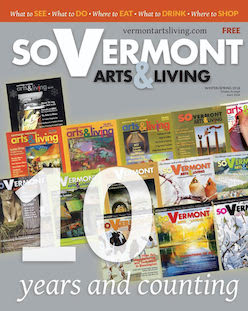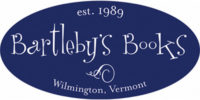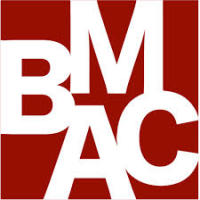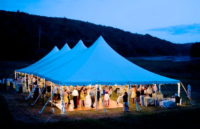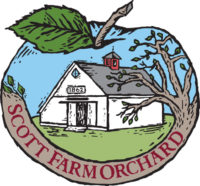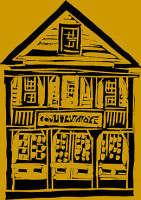Blanche Moyse
 Southern Vermont’s Musical Pioneer Turns 100
Southern Vermont’s Musical Pioneer Turns 100
by Clara Rose Thornton
“In the early 1950s Vermont was a state defined by its natural beauty and self-reliant people. Blanche Moyse helped expand the definition of who a Vermonter was. A Vermonter became someone who responded to sights and sounds, both natural and man-made, in very passionate, very nuanced ways.”

Southern Vermont’s Musical Pioneer Turns 100
by Clara Rose Thornton
“In the early 1950s Vermont was a state defined by its natural beauty and self-reliant people. Blanche Moyse helped expand the definition of who a Vermonter was. A Vermonter became someone who responded to sights and sounds, both natural and man-made, in very passionate, very nuanced ways.”
Brattleboro Music Center (BMC) Managing Director Richard Riley said this about an enigmatic Swiss émigré and violin virtuoso who, after relocating to the Brattle boro area in 1949, essentially founded the rich classical music culture that is part of the fiber of the region. A distinguished legacy, it includes founding the convention-shattering BMC, the music department of a then-fledgling Marlboro College, a chorale internationally renowned for its Bach interpretations, and, of course, the Marlboro Music Festival, which, now in its 59th year, was recently featured in the The New Yorker as “the classical world’s most coveted retreat.”
It appears that a southeasterly triangle of a little North Country state received a fireball shot from ravaged, postwar Europe, and somehow it, and the world, was never quite the same. The fireball is Blanche Honegger Moyse (pronounced “Mo-eez”), and she turns 100 years old on September 23.
Born in Geneva, Switzerland in 1909, Blanche began violin lessons at eight years old. In a few short years she was studying under the great German violinist Adolf Busch. At 16 she earned first prize in violin at the Geneva Conservatory, the year she is reported as having earned the education equivalent of a doctorate. That same year saw her debut with L’Orchestre de la Suisse Romande under Fritz Busch, performing the Beethoven Violin Concerto to much acclaim.
Success took her to Paris, where she met and married concert pianist Louis Moyse. This triggered the formation of the Moyse Trio, consisting of the couple and Louis’ father Marcel, the era’s foremost flutist. Hailed as the “perfect” ensemble of the day, they received France’s ultimate recording prize, the Grand Prix du Disque. Seeking to leave a beaten down France immediately following World War II, the trio went first to South America on the promise of a new music school that never materialized, and then to southeastern Vermont on the invitation of the already-emigrated Buschs—Adolf and Hermann. Together with Rudolf Serkin—fellow émigré and prodigious Bohemian-born pianist—the Moyses and Buschs founded the Marlboro Music Festival in 1951.
“That’s a lot of firepower in one little corner of the state!” mused Riley.
“The vibrancy of the arts community in Southern Vermont might in large part be seen as an outgrowth of the Marlboro Music Festival,” said Susan Dedell, artistic director of the 2009–2010 BMC season. The season includes programs in Moyse’s honor this September 25 and October 17–18 at Centre Congregational Church in Brattleboro and Persons Auditorium in Marlboro, respectively. “Those summer festivals brought—and continue to bring—some of the most exciting musicians from around the world together for weeks at a time,” said Dedell. In 1951 Blanche began teaching in the community year-round and formed a chorus made up of community members and students at the recently formed Marlboro College. It was this immersion into community life that led Blanche to envision a music center with a mission to “promote the love and understanding of music through performance and education and to make music a vital part of the community.” Thus was born the Brattleboro Music Center.
At Marlboro, Moyse became colleague, teacher, coach and confidante to many of the day’s premier musicians in her 30 years as chairman. When a bow-arm ailment forced Moyse to retire from playing violin in 1966, she took up conducting and decided to dedicate the rest of her life to the study and performance of Bach. This began a deep passion for Moyse which would soon manifest with the founding of the New England Bach Festival in 1969. Performances at NEBF included world class soloists, and instrumentalists, and the Blanche Moyse Chorale, amateur singers chosen by audition. The NEBF took place during Vermont’s fall foliage season throughout the New England region. In the summer, the Marlboro Music Festival featured the annual Bach Cantata performance. Blanche retired in 2004. The Blanche Moyse Chorale still performs and is directed by Mary Westbrook.
Today, with the BMC’s Windham Orchestra and Music in the Schools program being more of the myriad outgrowths from the seeds sown by Moyse, it is easy to understand why this region’s rich creative community celebrates her extraordinary accomplishments. The spirit lives on.




